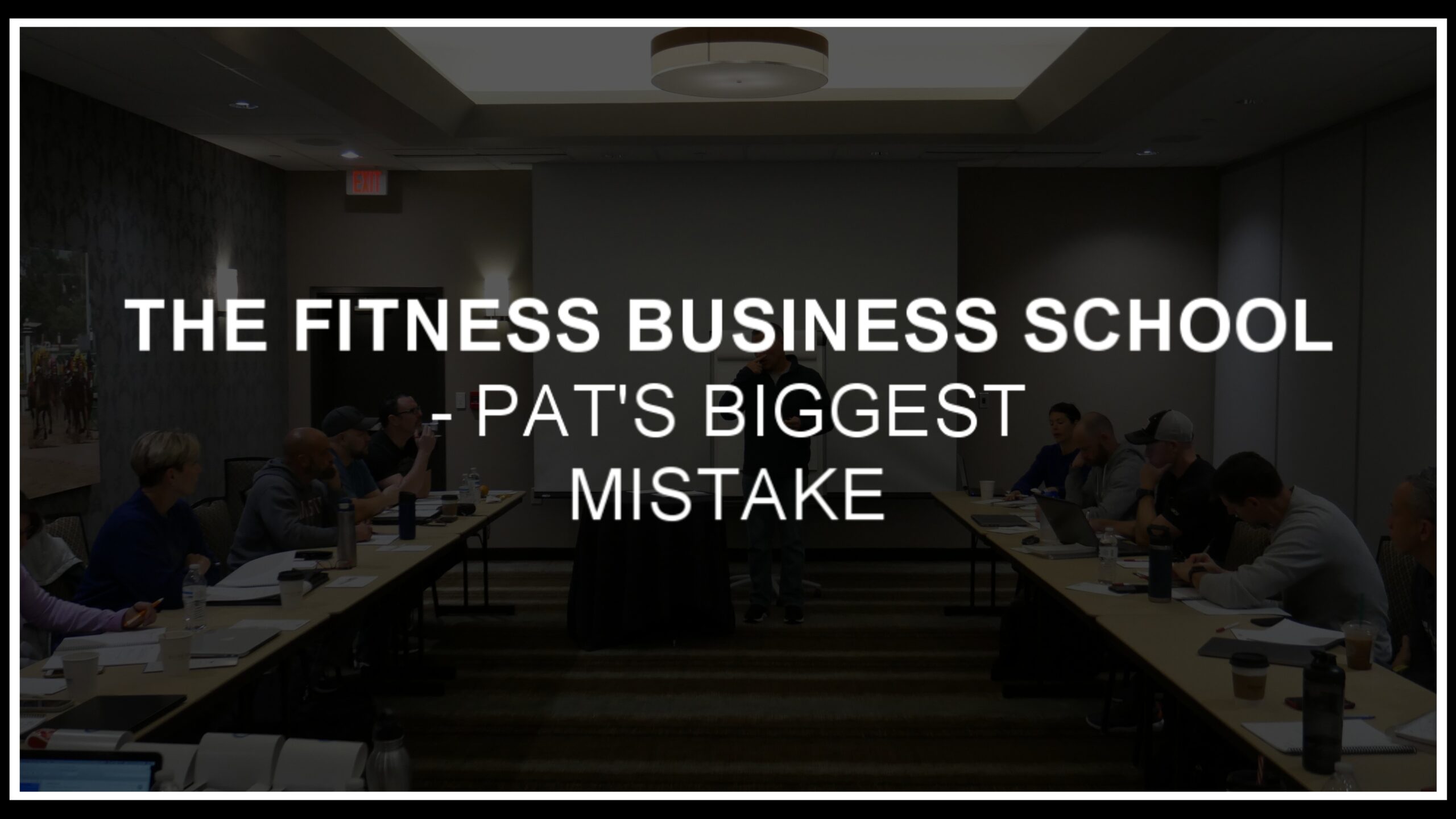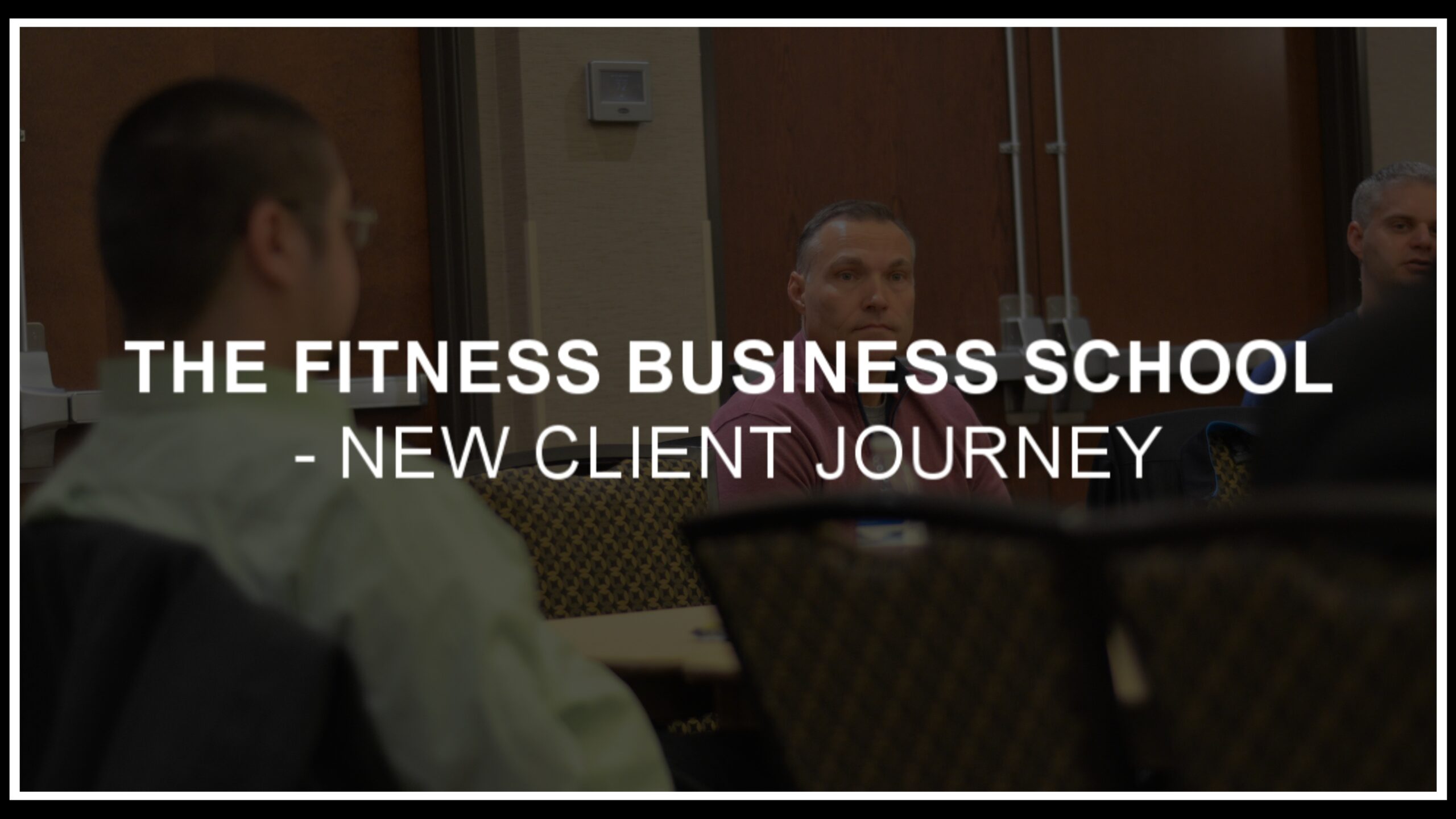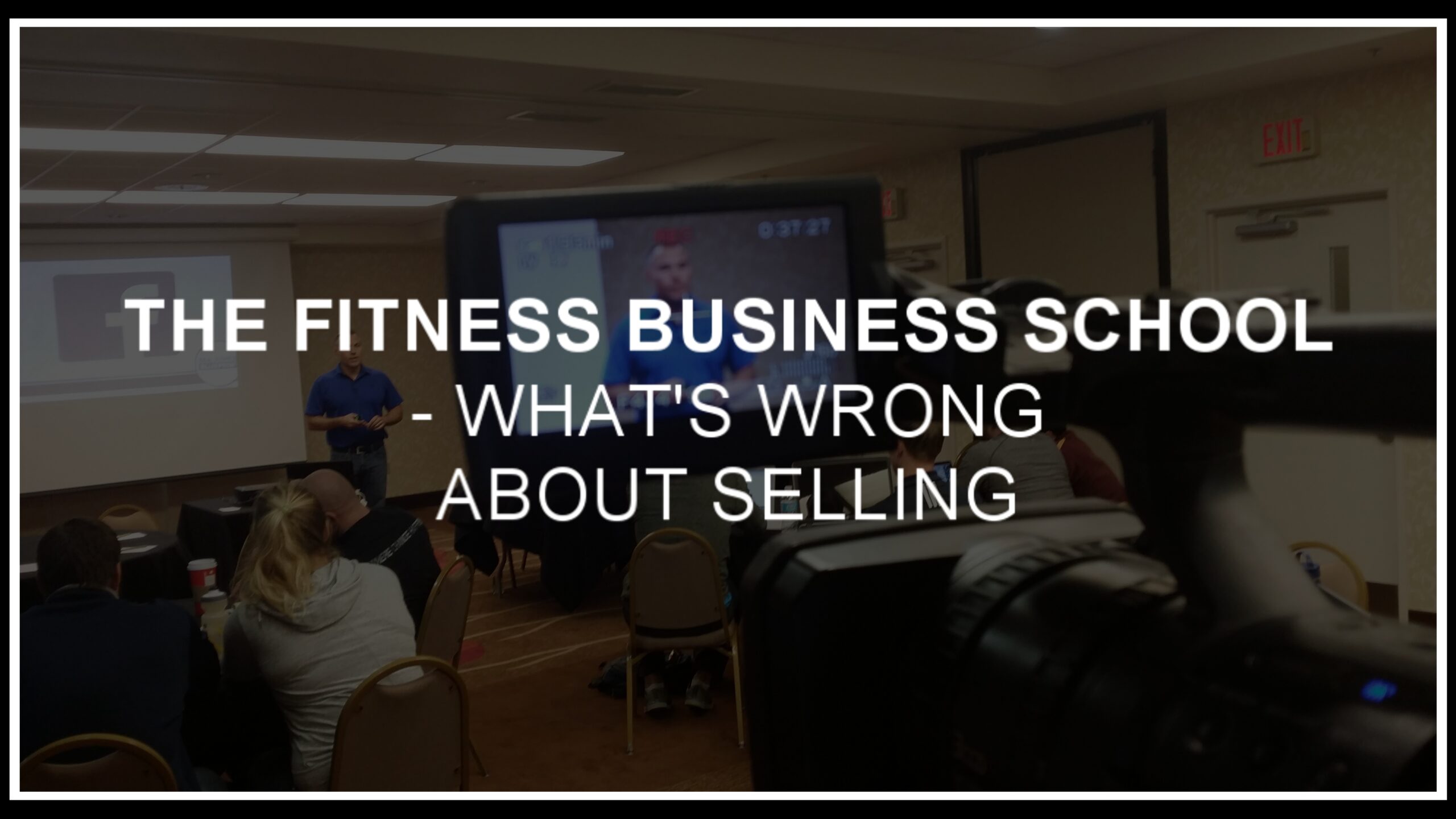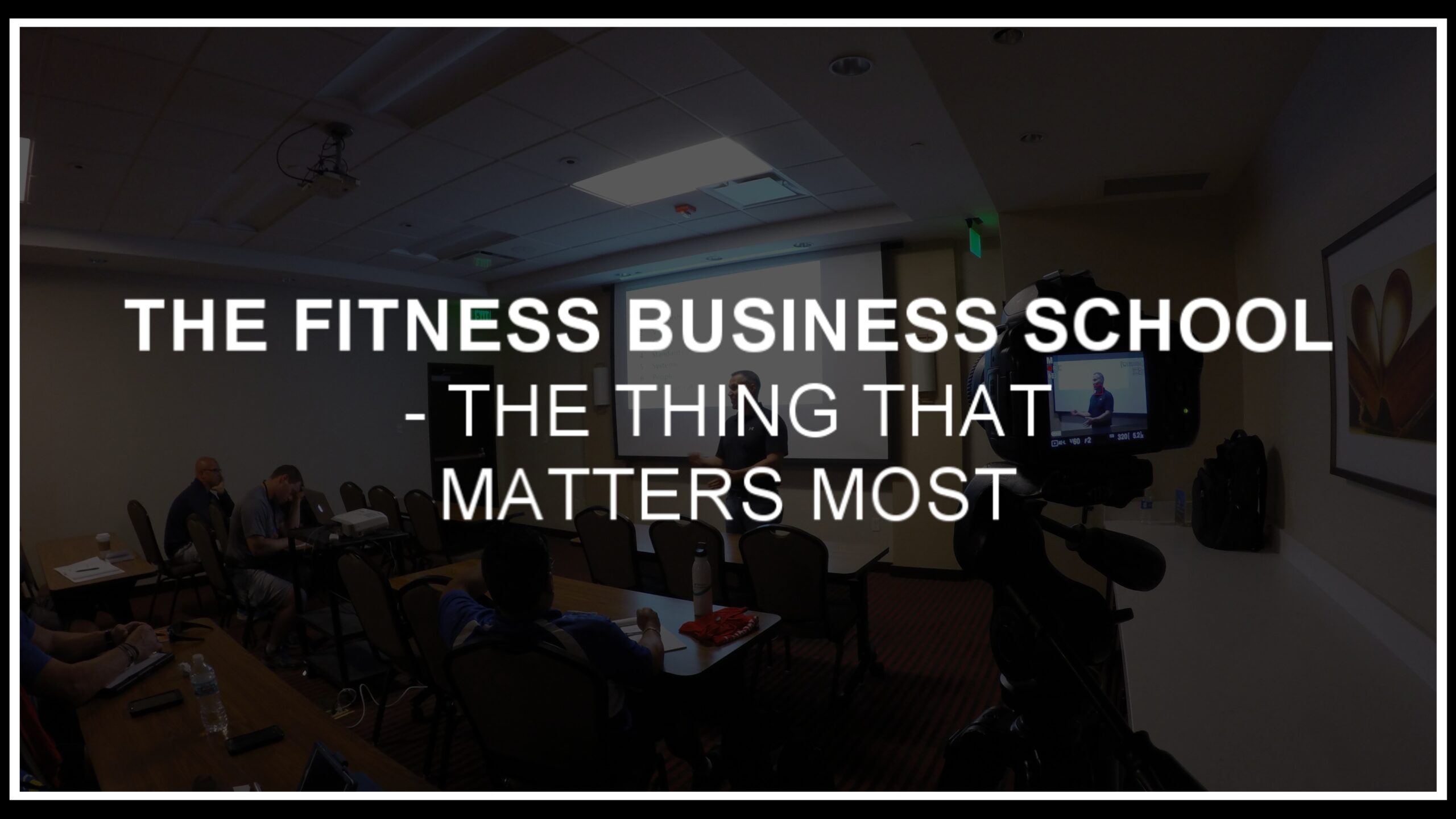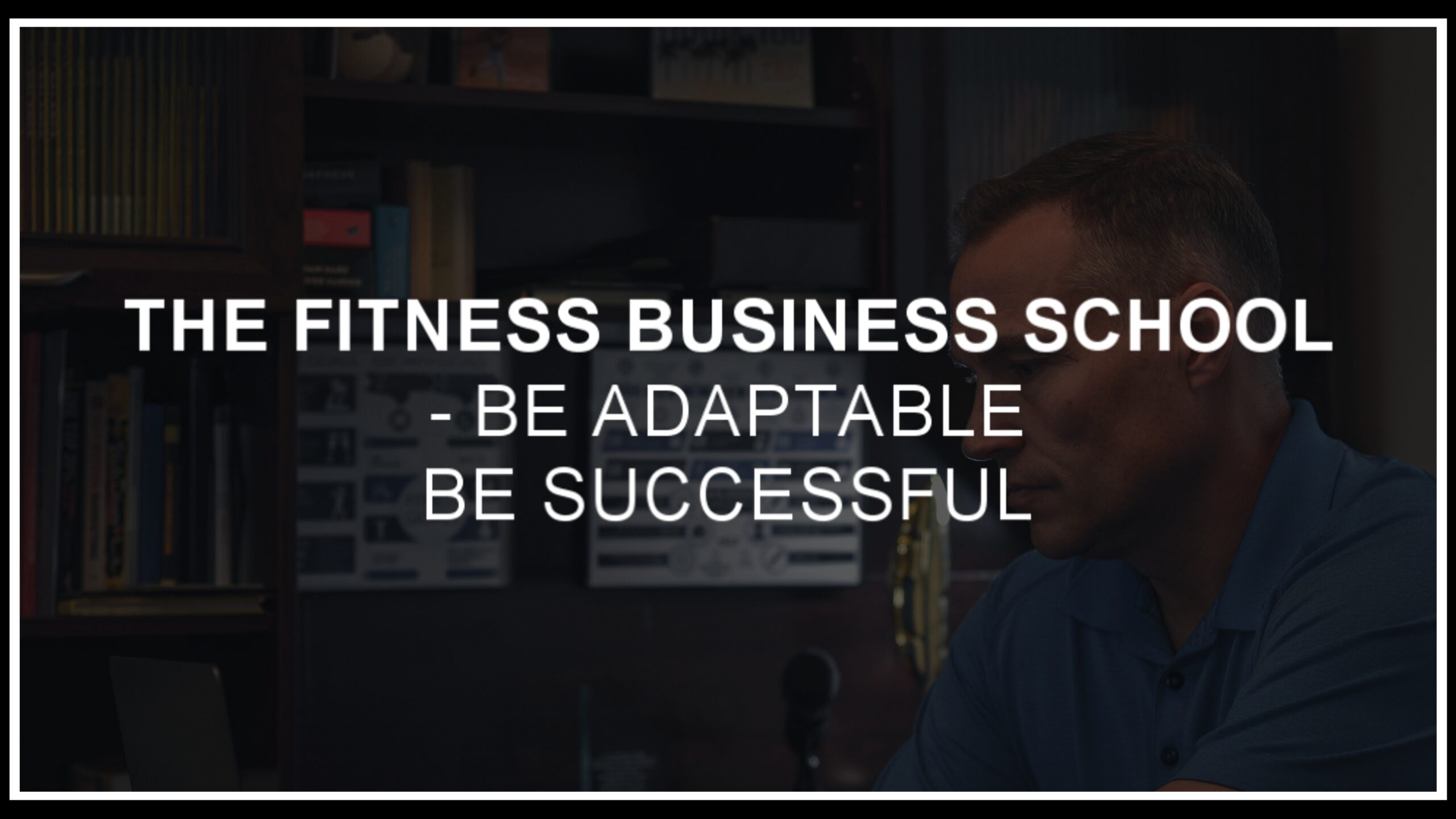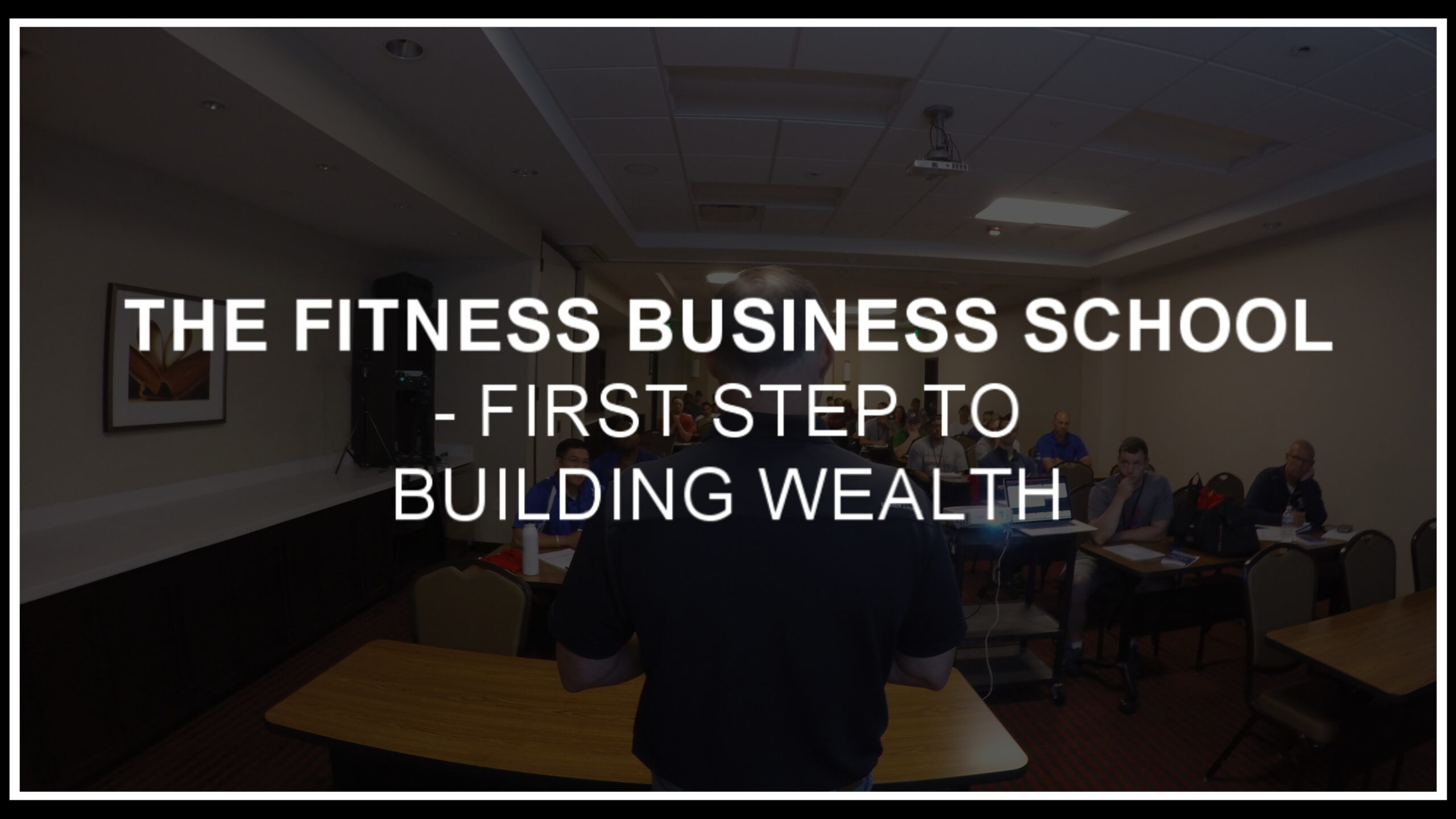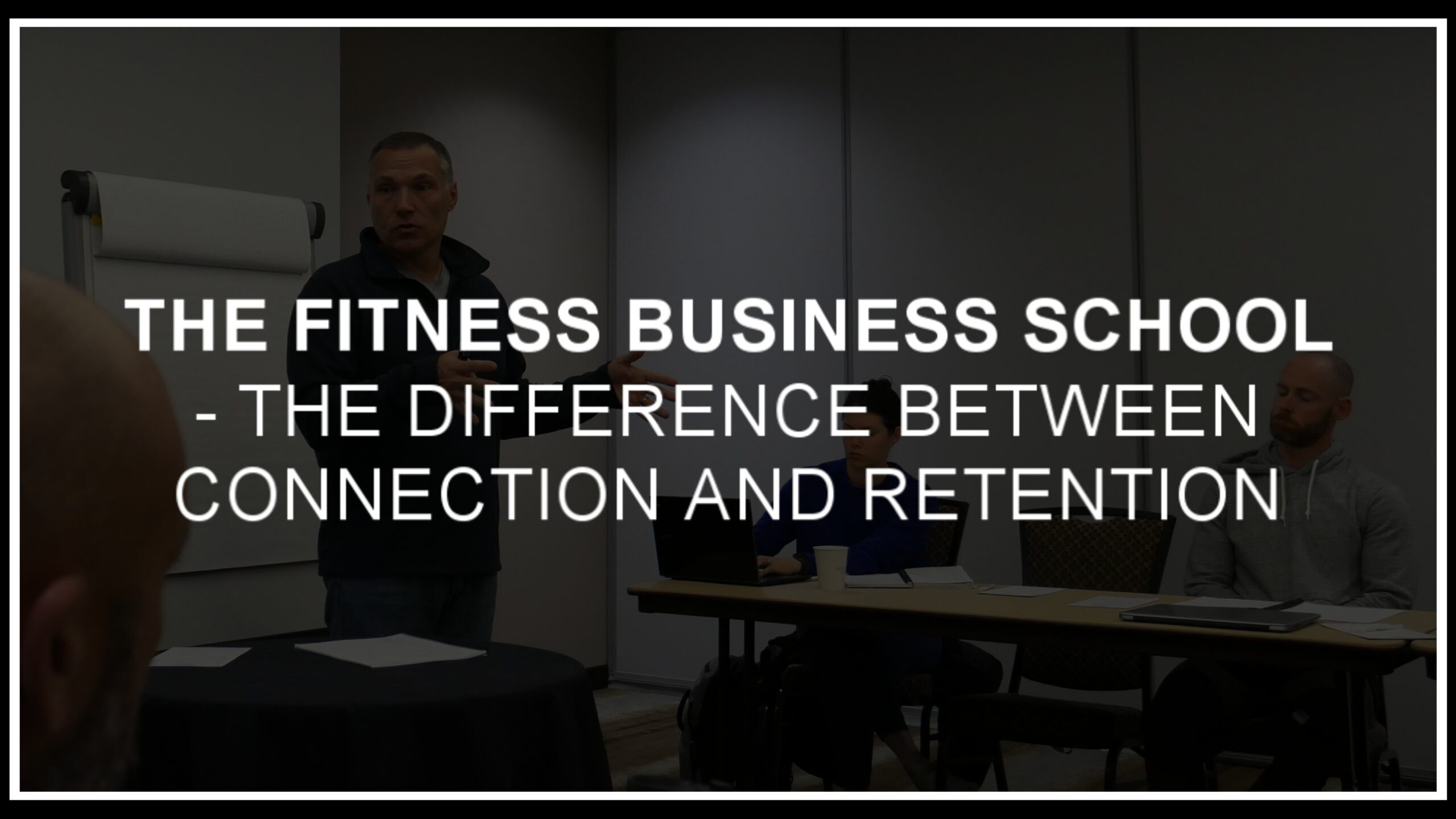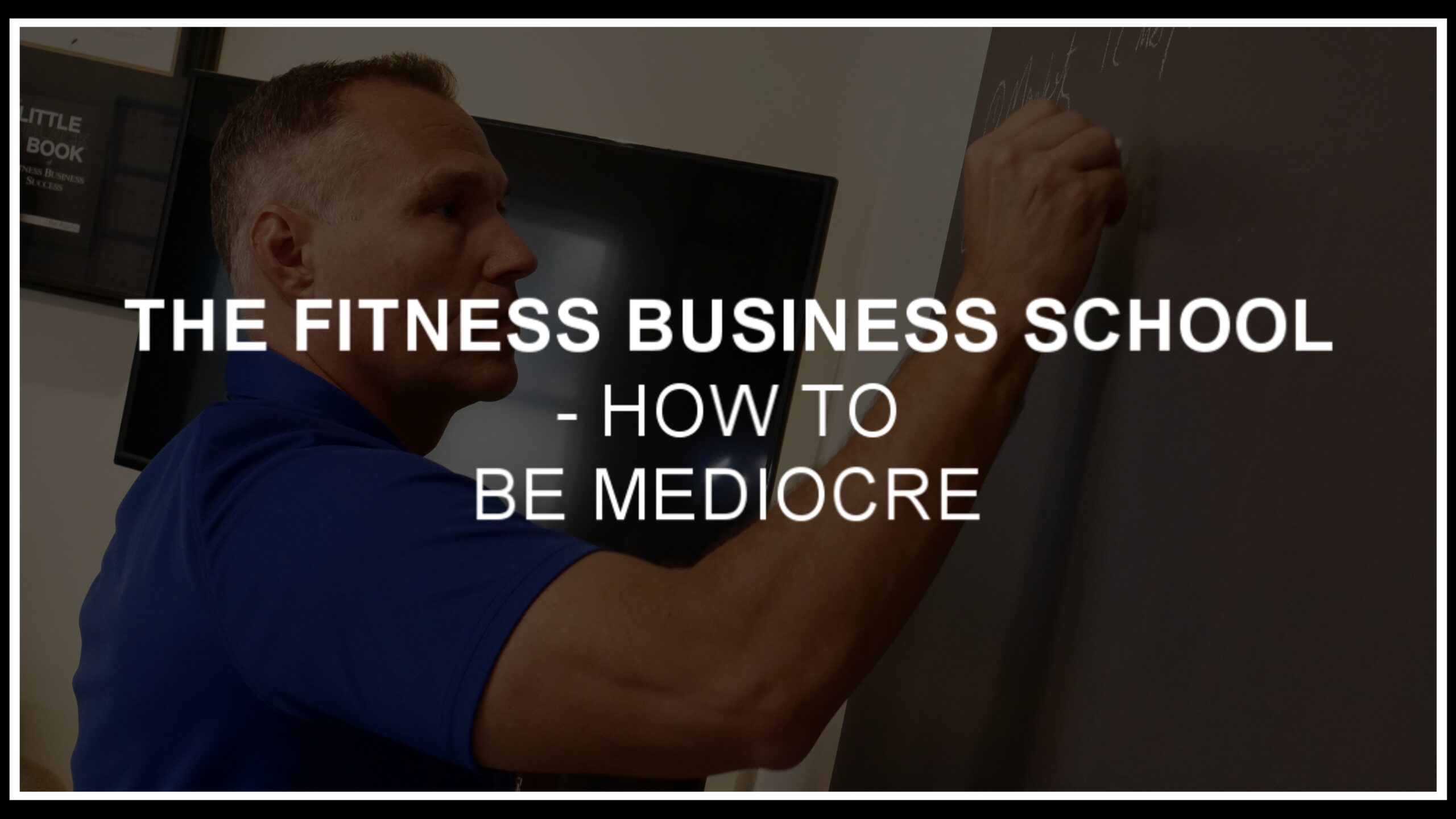Show Notes
00:00 Introduction: How to Get Better
00:27 The Bigger is Better Myth
01:57 Personal Experience and Insights
03:37 Purposeful Business Building
07:19 Chasing Vanity Metrics
10:50 Conclusion and Special Offer
Full Transcript
Hey Pat Rigsby here and in today’s episode, I want to talk with you about how to get better. Let’s get started.
Welcome to the Fitness Business School podcast, the show for fitness business owners who want to grow their income, increase their impact and improve their lifestyle. Be sure to listen to the end of this episode because we have a brand new special offer exclusive for listeners. So stay tuned.
Recently, I got to go to a conference, a convention, and I spent some time with a few business owners during the trip. And the common theme that I heard from some of them was, Bigger is better. And then actually during the convention itself, and it was a baseball coaches association convention, same type of thing was a common theme.
If you will, some people thinking, Oh, when I go work at this bigger program, that’ll be better. And at this bigger school, when I get to go to a division one program, it’ll be better. The experience I’ve had, and that, that doesn’t necessarily mean that this is definitive or universal for everyone, but the reality is bigger is not necessarily better is better.
And so many times our self worth gets tied up in bigger. Bigger numbers, more revenue, more locations, bigger team, more followers, more likes, coaching at a bigger school, that sort of thing. And it’s easy, right? Like it’s easy to quantify. It’s easy to show off. But what I realized was my happiness definitely increased when I started to disassociate myself with some of those vanity metrics.
When I was thinking about What success looked like. In fact, I remember years ago, telling one of my former players who’s gone on to become a tremendous college baseball coach, I asked him about comparing two programs. One was a, an underfunded division one college program. And one was a, probably the most well funded.
In their conference among the most well funded in the country, division three programs. I said, which would you rather coach at? And he instantly said the division one program. And I think his logic aligned with what most people’s logic would in that example would be bigger is better. But I told him my thoughts were Just the opposite.
I would rather coach somewhere where I was well resourced, where the school was behind you, where, you were in an environment where you could be set up to succeed rather than it being almost like a fluke to be successful. And again, that doesn’t mean that’s the only way to look at it, but fast forward, probably gosh, at this point, almost 20 years later, at least 15 years later, He’s one of the best division three coaches in the country.
His team has gone to the world series several times, and he just recently turned down a division one job that was an underfunded division one position. And so I think at that stage of life, he probably started to align with that thinking as well. The reality is your personal income can increase.
Your hours can decrease. If you focus on better, if you just focus entirely on bigger, there’s always going to be significantly more moving parts and you got to decide, are these the moving parts I want in my life? Because they’re all going to take up time. They’re all going to take up some of your mental bandwidth and.
I think I would rather build something small or even midsize that it was best in class, best in its respective market and do great work, do something I’m proud of and create something that I really enjoyed rather than feeling like the only measure of success is just. Size, right? If I think back to earlier on in my business ownership time, I got to the point where I was the co owner and CEO of a franchise organization.
And we were, we got to be relatively big, at least by my standards and had 275 locations. And one of the things that I had set out as a goal, as a target, was that I wanted to have a franchise recognized in the entrepreneur franchise 500 listing, which is a recognition of what entrepreneur magazine thinks there are the top 500 franchises in the United States.
And that seemed like a, an ambitious goal, something to provide some clarity and focus. And I look up and we have two franchises listed there. One. At 193, so one in the top 200 and another one at 273. So both in the top 300. And I remember how empty that feeling was. It wasn’t like a negative feeling other than it was just surprisingly unfulfilling.
And I said, nothing about my life has changed. Even though we’ve hit this vanity metric, nothing is better. Nothing is. a, even a bit different in my life because we hit this benchmark. And I think I recognized at that point that. I’m chasing the wrong things. I’m, my legacy is going to be people.
It’s going to be the impact that I’ve made on the people, maybe the people under my roof, the people that I’m friends with, the people that are clients and how they get to create their ideal business or how they get to have an impact in their community or how they approach business and life. And for me, that’s probably going to be capped at a smaller scale than going and growing to a thousand locations or something like that.
But more fulfilling, more time doing the things that are important to me. And like I said Even when my business was much bigger, there are a lot more moving parts, a lot more employees, the personal side of it to me the compensation to me financially, that the hours worked, all of those have significantly improved.
And I also feel a whole lot more fulfilled by the impact that I get to have with this kind of structure in this format. And so the reason that. The, that I wanted to talk about this today is every time I get in a one on one environment with business owners, and they talk about chasing vanity metrics or the big round numbers that I think so many of us, I know I did.
Got excited about, Hey, I want to produce a million dollars. I want to have 300 clients. I want to have this size facility. I want to have multiple locations, all those general kind of benchmarks of success, those things that, that we think will be successful when we hit those targets I understand it totally, but I also know that you, there’s no assurance that you can arrive at those bigger numbers and it will yield what you want out of being a business owner.
So I would instead recommend that you are very purposeful in what you’re pursuing, what you’re building. You’re being very intentional and saying, okay, this is what I want my business To do this is the impact I want to make with my business and don’t just assume that if it’s bigger, it’ll make that impact actually be intentional about making that impact or, Hey, this is the type of income I need to make from my business to provide for my family, to create financial security, to have the experiences that I want to have and pursue that not top line revenue.
And top line revenue sometimes comes with much greater expenses. And if we don’t manage the profit margin, it doesn’t necessarily correlate with more money. I’ve had clients who 4x their top line revenue and their personal income didn’t go up at all. And it becomes so easy to just let that money burn a hole in your pocket and spend it on more staff and more equipment and a bigger space and that sort of thing.
All is assuming that growth, continued growth is inevitable. So think about the things that are important to you and pursue those things. Be very specific, be very clear and give yourself permission to. Pursue things that aren’t just more and bigger, but actually better that you get to want what you want.
You should never apologize for wanting what you want. And sometimes that means, Hey, I want to be able to create a business that allows me to coach my kids, little league team, or to live in the type of house I want, so my kids get to be in the school district, or I want to have these kinds of life experiences.
I want to go see the world. So I want some flexibility in my business. And then reverse engineer your business from there, because ultimately it’s your business. You’re the one investing more time, many times over than anybody else in this. You’re the one making the sacrifices. You’re the one who is being willing to do what most people in society won’t do.
Business ownership requires a lot of you. And so if it’s going to require that much of you, you should make it the best thing for you, not just. Pursuing some arbitrary goal that doesn’t really have anything to do with you. If you want to be successful, bigger isn’t necessarily better. Better is better.
Thanks for listening to this episode of The Fitness Business School.
Before you go, I have a quick announcement:
One of of the things that we’ve been doing with our current clients is taking them through this Ideal Business diagnostic and really what it is, this checklist that allows you to pinpoint exactly what your business needs next so you can keep improving, keep growing, and build a business that you love to own, one that pays you well, one that allows you to have the impact you wanna have and one that allows you to have a lifestyle that you truly enjoy.
In this diagnostic, we walk through everything and we do an evaluation and can instantly pinpoint what you need to do next to build that business that you want. I’m going to extend this opportunity to get on with either me or my team and take you through this evaluation and fix your business’s most vital needs fast.
So if we take you through this, you’re gonna be able to make those vital changes that you need to finally have what I call your Ideal Business. If you’d be interested in going through this entirely free, risk-free diagnostic with us and learn what you already have in place, what you’re doing well and where are your greatest opportunities for rapid improvement are just shoot me an email with diagnostic in the subject line to [email protected].
Again, an email to [email protected] with diagnostic in the subject line will get
you scheduled and take you through this evaluation to help you build the business you want.


